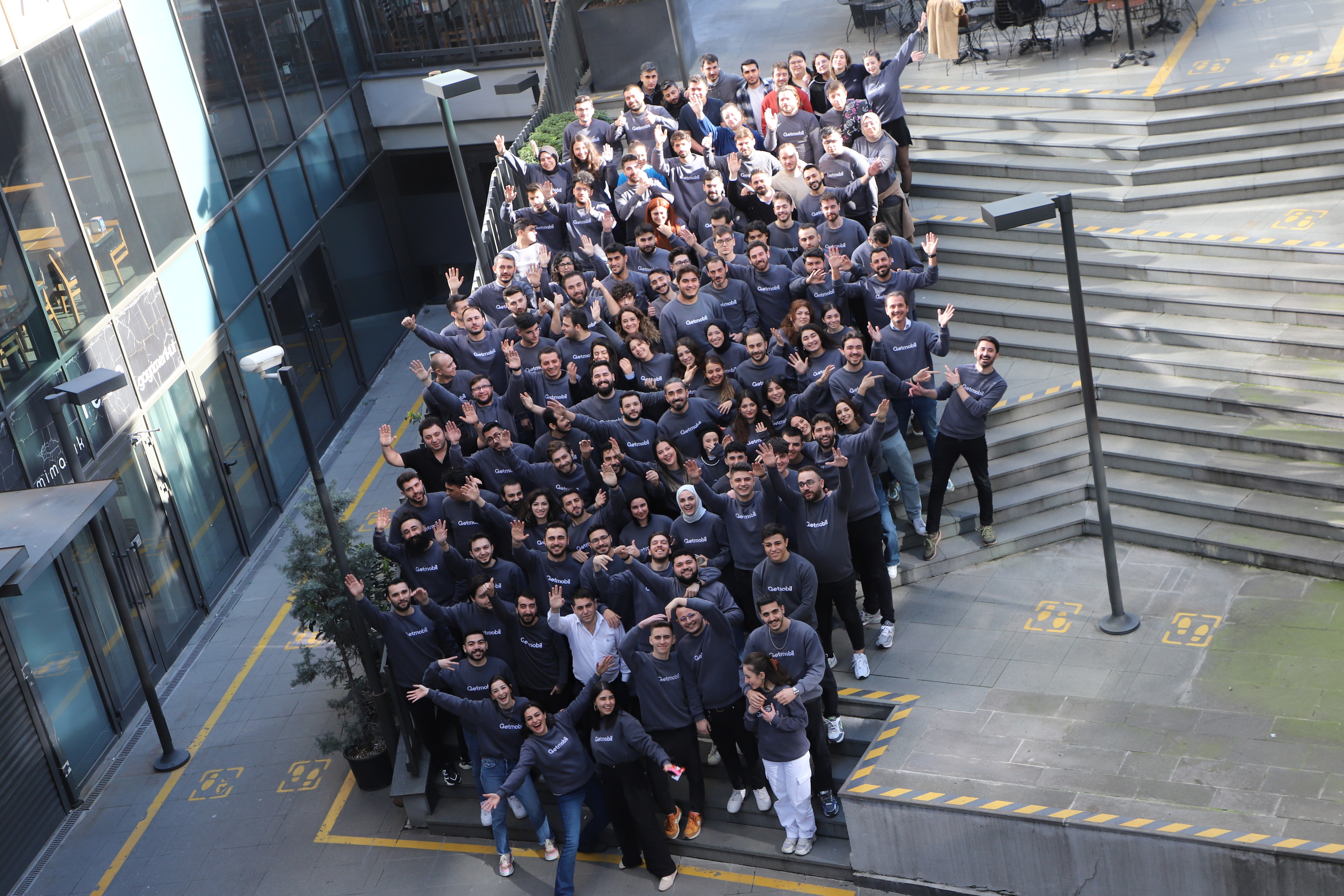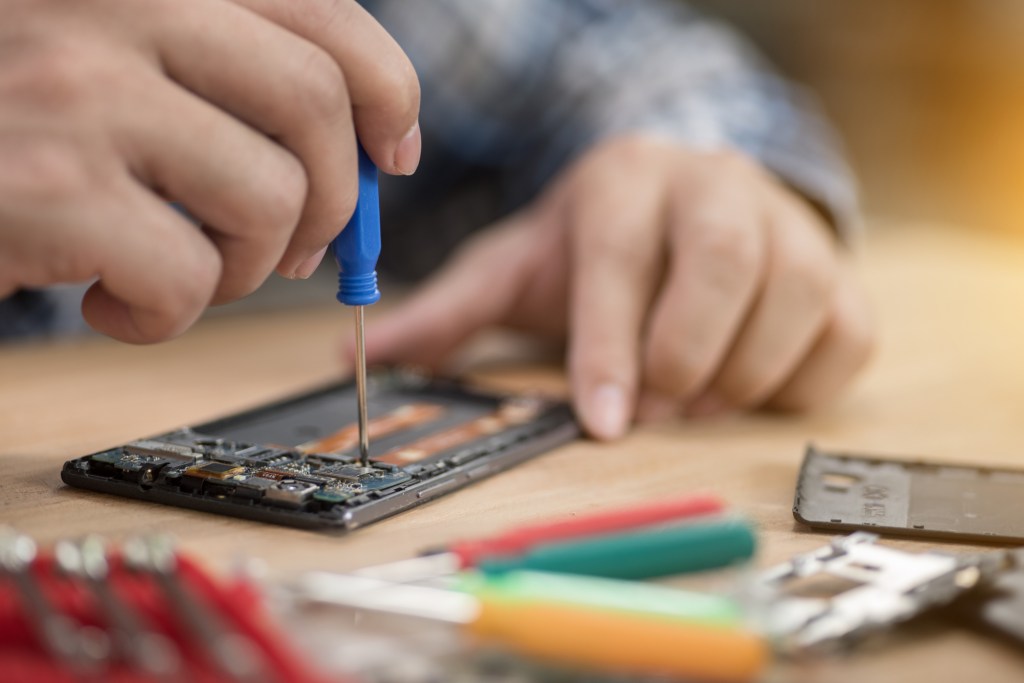Think quick — how much does a top-of-the-line iPhone 15 Pro Max cost? If you said around $1,600, you’d be right, but only if you’re based in the U.S. In Turkey, the same phone will set you back almost $3,000. That gap introduces a fantastic opportunity for arbitrage — and a lively second-hand and refurbished market. Getmobil just raised $4 million to legitimize phone refurbishing inside the country.
“The Turkish government wants to decrease the trade deficit,” explains Mehmet Uygun, CEO and founder at Getmobil. “The government wants to create a circular economy. They don’t want the customers to buy brand new phones, because whenever a customer buys a brand new phone, the dollar goes out of the country.”
Global economics and trade policy is deeply fascinating, and can cause some really weird quirks in local mobile phone markets. In 2010, for example, Argentina introduced a set of rules that meant that if you wanted to sell products in the country, you’d have to manufacture there. That had a ton of strange effects; English-language books became almost impossible to buy or insanely expensive (I remember paying $65 for a hard-copy of Walter Isaacson’s biography of Steve Jobs in a Buenos Aires book store — which sold for about $29 in the U.S. at the time). It also meant that Apple yeeted out of the market altogether, choosing not to sell its iPhones in Argentina. And suddenly, long after everybody else had more or less forgotten BlackBerry even existed, the phone brand had a resurgence in the country when it decided to build an assembly plant there.
The same thing is happening in Turkey at the moment; Turkey, desperate to keep its GDP within the country’s borders, has put a hefty import levy on phones. It’s not easy to get around those limitations either — if you sneak a phone into the country, its IMEI will be blocked from the three major networks after 120 days.

Obviously, people still need phones, but, unwilling or unable to pay the incredibly high import taxes, they seek other solutions. Getmobil had its humble beginnings as a modest phone repair shop, and has since evolved into one of the leading e-commerce platforms in Turkey, specializing in the sale of refurbished electronics.
The lead investor, the slightly confusingly named Dutch Founders Fund (DFF), invested in Getmobil’s. “While DFF is based in the Netherlands, our focus at DFF lies in investing in B2B marketplaces during their seed phase,” says Hidde Hoogcarspel, co-founder and managing partner at DFF. “Our portfolio companies are not only located across Europe but also in regions such as Dubai and Egypt. These marketplaces typically operate across borders and sometimes even globally.”
Where there’s friction, there’s opportunity
As the Getmobil founders navigated the complexities of the electronics repair market, they identified a significant gap between the high cost of brand-new devices and the consumer’s desire for more economically viable alternatives. This realization prompted a pivot away from merely repairing devices to refurbishing and selling them, thus laying the groundwork for what would become Getmobil’s core business model.
In putting up high tariffs, the Turkish government created a grey market: People were selling and buying phones with cash, none of which was reported to the government. The good thing was that the money stayed within the country’s borders, but obviously, nobody was collecting taxes along the way, so that caused a new problem: Yes, the money was circular, but none of it was leaking into the country’s tax coffers.
“Turkey is an absolute outlier refurbished market. The price of a new iPhone in Ankara is far higher than in any other place in the world. The government has created a unique and far-reaching regulatory framework and incentive scheme, and imports are limited,” explains Hoogcarspel. “The formal refurbishing sector in Turkey is still in its early stages; the informal trade is thriving and is estimated to surpass the entire market size of $7 billion for new device sales. Tens of thousands of merchants operate within this informal segment.”
Eager to get the situation under control, the government brought in some big changes, including some new regulations, tax incentives and opportunities. In 2021, Turkey introduced a set of regulations that significantly bolstered the refurbished electronics market, creating a more structured and reliable framework for companies operating within this sector. These regulatory changes were framed as encouraging sustainable consumption practices, enhancing the quality and reliability of refurbished devices and reducing the environmental impact of electronic waste.
“[The Turkish government] introduced a refurbishment center regulation. They said ‘if you build the refurbishment center with some specific standards, we will not take 20% in taxes, we will take 1%,” explains Uygun. In addition, the government made it possible for the vetted refurbishment centers to offer installment payments — rather than having to pay for the devices in full. That’s extraordinary, the founders explain, because consumer credit is highly regulated in Turkey. They say that Apple cannot offer installment plans.
Getmobil’s growth trajectory has been remarkable, driven by a combination of strategic foresight, operational excellence and a deep understanding of the Turkish electronics — and regulatory — market. The company’s rise is characterized by its ability to offer consumers high-quality, refurbished electronics at competitive prices, thereby filling a critical market gap. This value proposition helped endear Getmobil to consumers, and has positioned the company as a vital player in Turkey’s electronics sector. And, presumably, the government is excited to be one step closer to being able to regulate the out-of-control second-hand market.
Winners: Local economy and the environment
While there’s little doubt that the main driving force behind the government’s regulations is revenue, forcing a more robust repair and second-hand market has a number of positive side effects, such as a dramatic increase in usable life of devices, and a significant reduction of e-waste.
Before the regulations, the refurbished electronics market in Turkey was chaotic and fragmented, and the quality and warranty coverage of second-hand devices was highly variable. The new frameworks put in place established stringent standards for refurbishing processes, including quality checks, warranty requirements and after-sales services. This legislative environment has played a pivotal role in leveling the playing field. By playing ball with the government’s regulations, Getmobil bought itself an edge — by promising to stick to the rules, adhering to high standards of quality and customer service, the company got itself a tremendous competitive advantage.
By aligning the interest of the customers (cost and quality), the government (ability to keep money inside Turkey, and collecting some taxes along the way) and Getmobil, everybody wins. Reusing, repairing, refurbishing and recycling extends the circular economy to a broader user base and means that the environment gets a little boost, too.
Navigating the intricacies of Turkey’s electronics market presents a unique set of challenges and opportunities for Getmobil. The team tells TechCrunch that the pervasive black market continues to be a big challenge: This shadow economy not only undercuts prices of legitimate refurbished electronics but also often compromises on quality and after-sales services, posing a significant threat to consumer trust. Moreover, staying abreast of and compliant with the evolving regulatory environment in Turkey adds another layer of complexity to Getmobil’s operations.
Dependent on regulation
Of course, the first step toward suppressing the black market was creating an alternative for it, and that’s where the regulations and Getmobil’s round of funding comes in.
For the investors, it remains to be seen whether this is a good investment. DFF clearly believes that there’s a huge opportunity here, but in the process, it is investing in a business that’s essentially made possible by a government regulation that suppresses cross-border trade. Turkey isn’t a member of the EU (conversations stalled out over alleged human rights violations perpetrated by the Turkish government), but if it were to become a member, the entire business model for Getmobil falls apart: EU countries cannot impose trade tariffs for cross-border imports and exports, and without that, it’s easy to imagine the Turkish market getting flooded with used and new electronics priced the same as in the rest of the EU.
Whether or not Getmobil’s future is secure depends entirely on geopolitical events and the direction of tomorrow’s trade tariff winds.































Comment